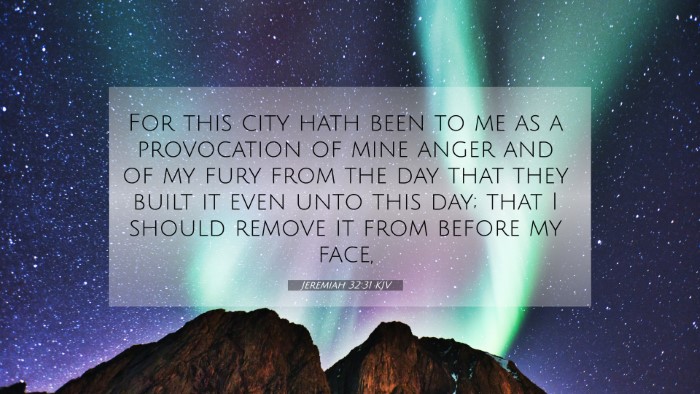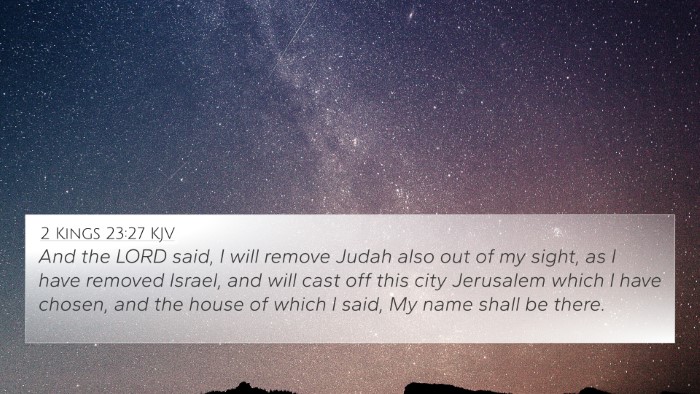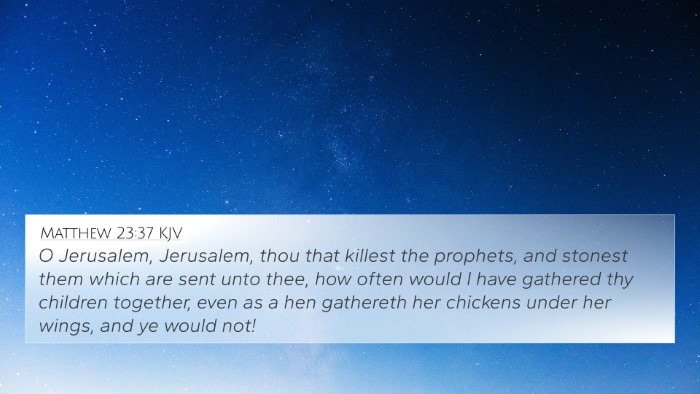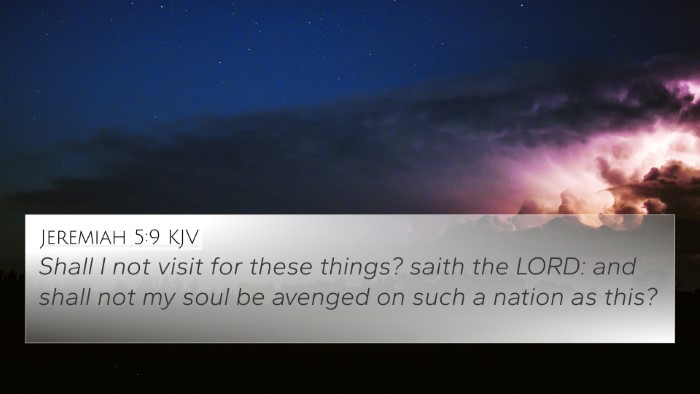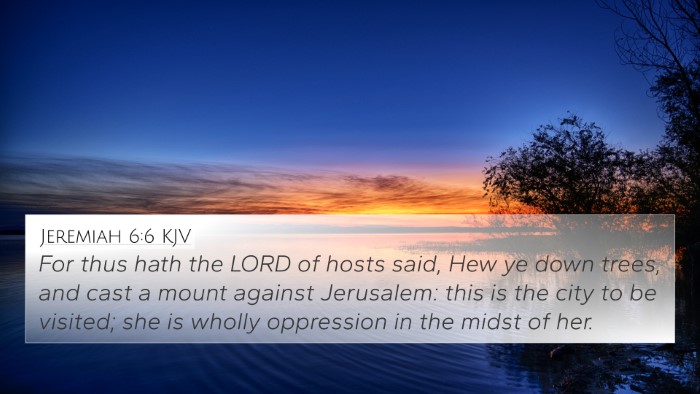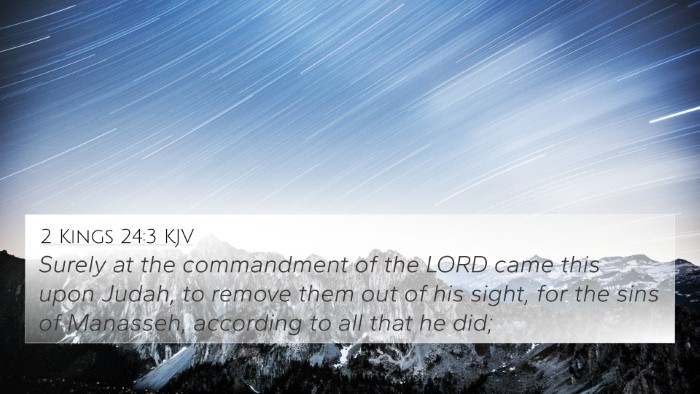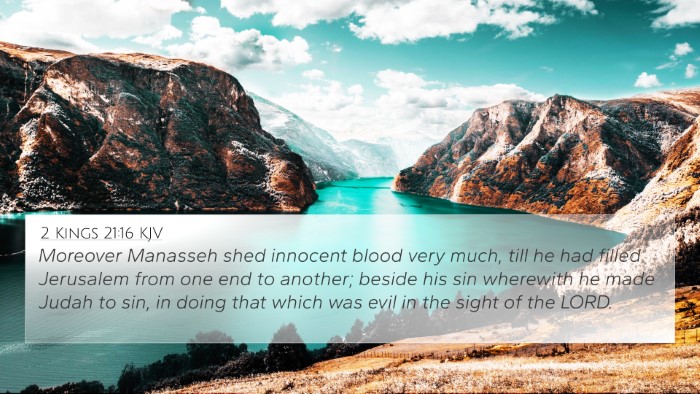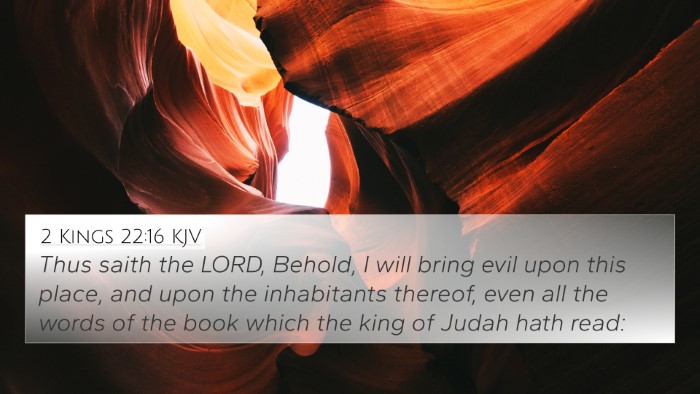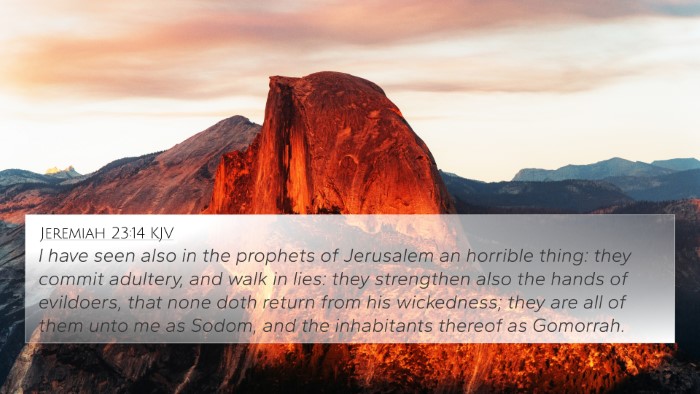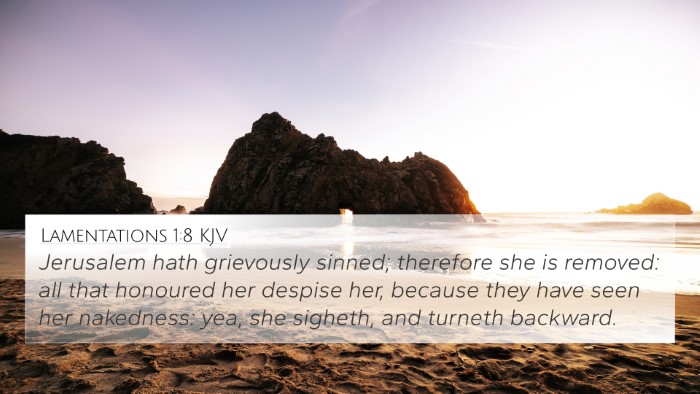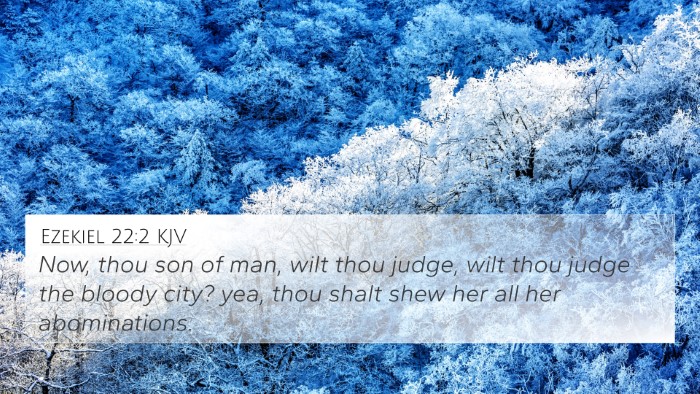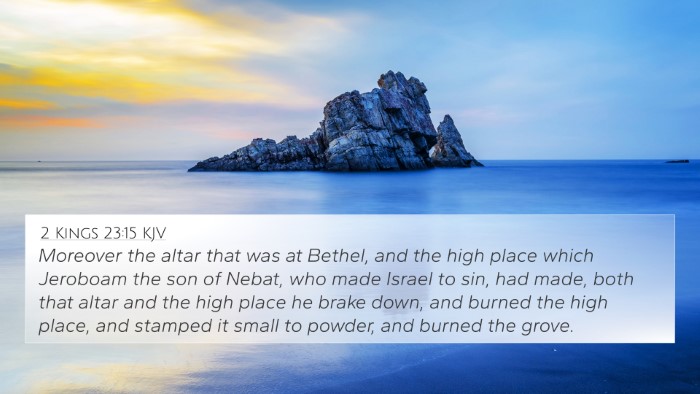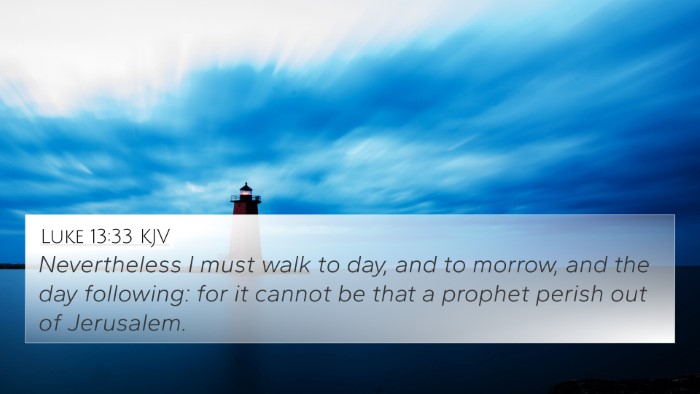Understanding Jeremiah 32:31
Jeremiah 32:31 states:
"For this city has been to Me a provocation of My anger and My fury from the day that they built it, even unto this day; that I should remove it from before My face."
This verse reflects God’s judgment on Jerusalem due to persistent disobedience and defiance of His commandments. It serves as a stark reminder of the consequences that arise from turning away from divine instruction.
Contextual Analysis
In the broader context, Jeremiah prophesies during a time of impending doom for Jerusalem. The Israelites had increasingly turned away from worshipping Yahweh, engaging in idolatry and social injustices. Jeremiah’s message is one of judgment, but also of hope, as he speaks of restoration and a new covenant.
Commentary Insights
- Matthew Henry:
Matthew Henry emphasizes that the persistent disobedience of Israel has led to provocation of God's anger. He notes that the city, built on unfaithfulness, cannot expect God’s favor. Henry also highlights that this verse simultaneously conveys God’s displeasure and His ultimate plans for restoration.
- Albert Barnes:
Albert Barnes underlines that God’s wrath has been kindled against a city that has defied divine authority from its inception. He points out that despite the situation appearing dire, God’s overarching plan includes redemption, showcasing His justice balanced with mercy.
- Adam Clarke:
Adam Clarke interprets the phrase as indicative of the longstanding relationship between God and Jerusalem, characterized by continuous rebellion. Clarke discusses the implications of this verse regarding the future of Jerusalem, invoking prophetic insights into eventual restoration post-exile.
Bible Verse Cross-References
Understanding Jeremiah 32:31 is enriched by its connections to other scriptures, which provide clarity and additional insight. Here are some key cross-references:
- Isaiah 29:1-2: Discusses the judgment against Ariel, a term used for Jerusalem, reflecting a similar theme of divine anger and forthcoming punishment.
- Lamentations 2:6: Expresses the desolation of Jerusalem, resonating with Jeremiah’s foretelling of destruction.
- Ezekiel 5:9: Links to the severe judgments upon Jerusalem, emphasizing the shift from prosperity to devastation due to disobedience.
- 2 Chronicles 36:15-19: Chronicles the fall of Jerusalem, providing historical context to the prophecies found in Jeremiah.
- Revelation 21:2: Contrasts the fate of Jerusalem with the hope of a new Jerusalem, signifying divine restoration.
- Hebrews 12:29: Indicates that God is a consuming fire, drawing a parallel to His judgments on unfaithfulness.
- Deuteronomy 28:15-68: Lists the curses for disobedience, linking back to the themes of judgment prominent in Jeremiah’s message.
- Matthew 23:37-39: Reflects on Jerusalem’s rejection of prophets and ultimately, its divine consequences.
- Micah 3:12: Prophecies regarding the destruction of Jerusalem due to its leaders' corruption.
- Romans 11:25-26: Offers the hope of Israel’s future salvation, connecting to themes of judgment and restoration.
Comparative Bible Verse Analysis
The interplay of themes found in Jeremiah 32:31 and its cross-references illustrates a deep woven narrative of sin, judgment, and restoration throughout the Bible. The examination of these connections fosters a comprehensive understanding of God’s character, His relationship with humanity, and the overarching redemptive plan that unfolds through scripture.
Exploring Thematic Bible Verse Connections
Through thematic analysis, we find that the continuous motif of God's anger due to disobedience is paralleled across both the Old and New Testaments:
- Historical>>> Judges 2:11-14 – Reflects Israel’s cyclical sinfulness leading to divine judgment.
- Personal Responsibility> Galatians 6:7 – The principle of sowing and reaping resonates with the judgments depicted in Jeremiah.
- Hope and Restoration> Luke 19:10 – Reinforces the theme that, despite judgment, God seeks the lost to save them.
Using Bible Cross-References as a Tool for Study
To dive deeper into studying the Bible:
- Bible Concordance: A vital tool for locating specific themes and verses.
- Cross-Reference Guide: Helps identify relevant passages that echo similar themes or events.
- Cross-Referencing Method: A system that aids in creating thematic chains between verses, enriching understanding.
Conclusion: Inter-Biblical Dialogue
In conclusion, Jeremiah 32:31 serves not only as a historical reminder of God’s anger but also as a point of reflection on the nature of sin and redemption. Through examining this verse and its connections, believers can gain insights into their faith, enhancing their spiritual journey through a well-rounded understanding of the Scriptures.


